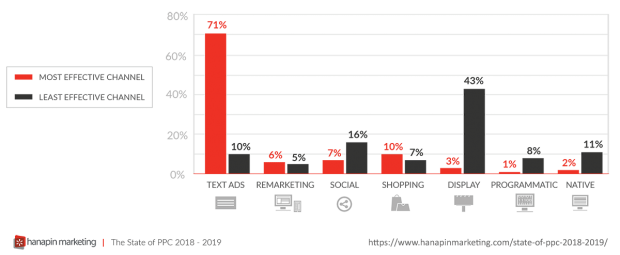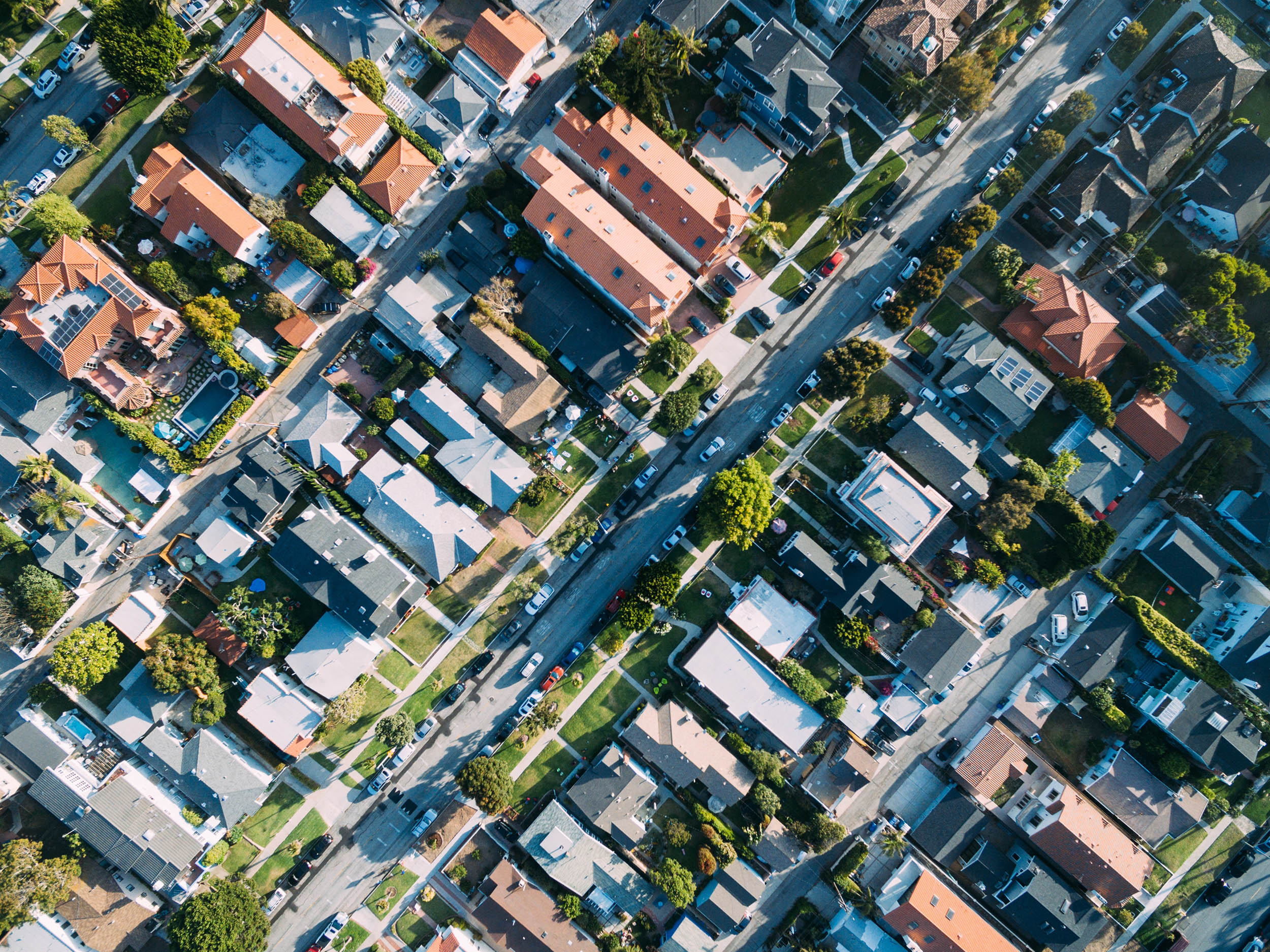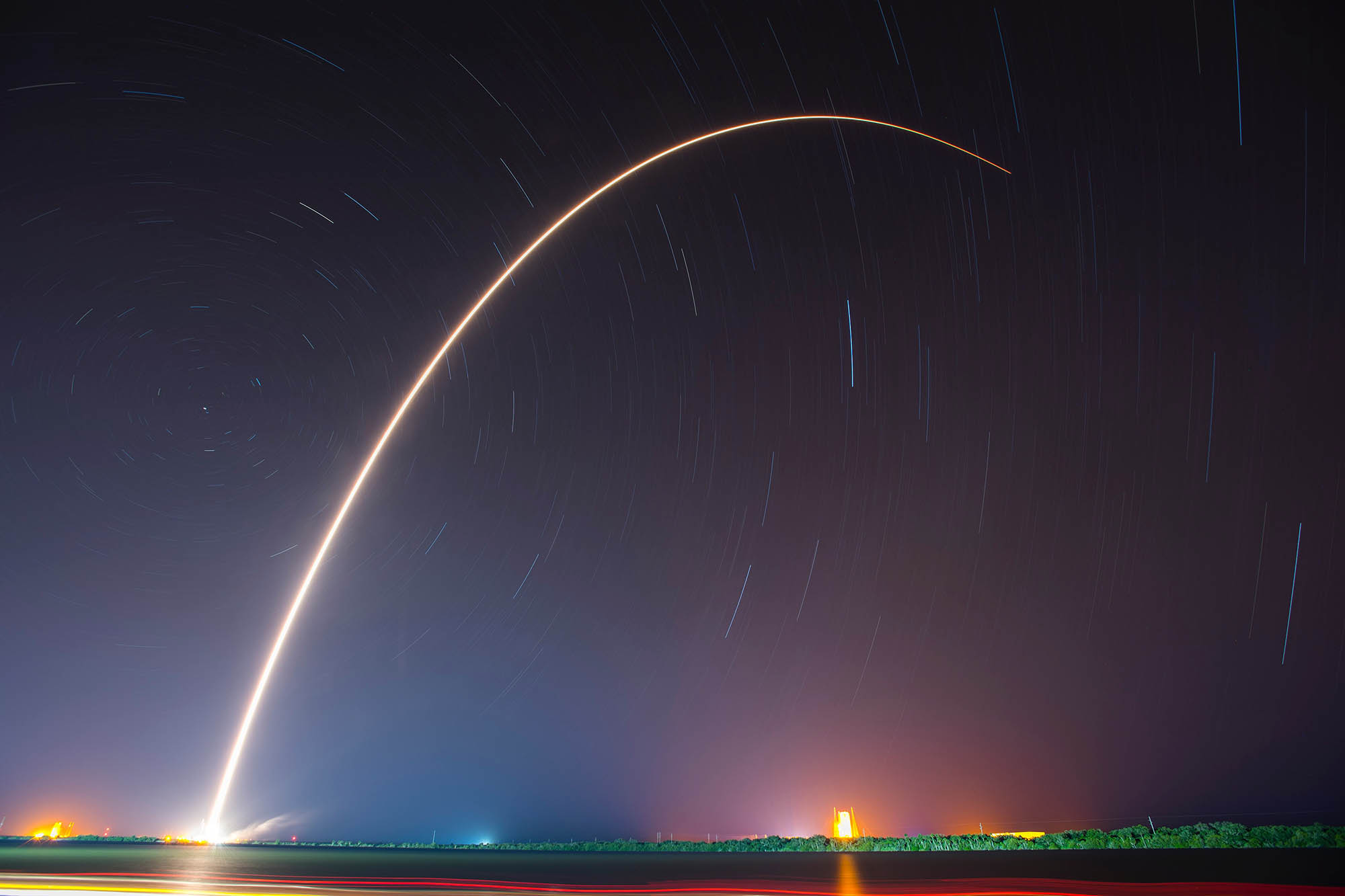Welcome to 2019. It’s an exciting time to be a pay per click marketer.
The advertising AIs and platforms are evolving rapidly, and most marketers are evolving along with them. Device use is shifting ever more towards mobile and voice search devices. Video ads and Amazon ads are more important all the time.
While it might seem daunting to keep up, we have to try – our competitors surely will. We got a gift in the form of the annual Acquisio ADvent Calendar, a roundup of what more than 20 leading pay per click marketers think will be the leading digital paid media trend of 2019.
In this article, we’ll pull from what the experts mention as their top picks for 2019 pay per click trends. But we’ll also expand out a bit to include more of the secondary trends that will shape your work this year.
1. Artificial Intelligence and Machine Learning Will Evolve.
It’s hard to overstate the affect machine learning and automation had on pay per click in 2018, and how much of an effect it will have going forward. The age of machines is here.
Nearly every expert on our ADvent calendar mentioned automation. The ability to automate bids and budgets was a starting point, but we also saw dynamic search ads, better attribution capabilities, and other features roll out in 2018.
All that will continue in 2019.
This does not mean marketers are out of a job, or that they will be out of a job soon. They just have an incredible set of new tools to work with.
And they can’t just walk away and let automation run their campaigns. Machine learning runs on data – literally – and so in cases where there isn’t much data, marketers still need to step in and think creatively, strategically, and quickly – all things that machines don’t do very well.
Our Co-Founder Marc Poirier talked about this specifically in the webinar, “Leveraging & Auditing AI for Better Search Campaigns in Your Industry”: For situations where data is sparse (i.e., for days like Black Friday, where campaigns don’t behave like other days of the year), it’s best for marketers to turn the algorithms off and manage their campaigns by hand.
Machines only do what they were designed to do, after all. They’re great at completing well-defined, consistent tasks. But it’s still up to human beings to interpret data and act on new information.
2. Human Marketers Will Keep Their Jobs, But They May Need to Pivot a Bit.
This will be a year when PPC marketers adjust their day-to-day tasks a bit. They won’t have to do so much bid management (how many of us are really going to miss that, anyway?). And they won’t have to spend so much time running basic ad split-tests and adjusting budgets.
But their clients, bosses and customers are still around. Any free time can be spent better understanding what they want and better communicating what’s going in PPC accounts.
Marketers can also invest time in learning about their target audiences, and in learning how to segment and target those audiences (more on this in a moment). They could also invest time in creating more customized ad creative, and in developing customer journeys that are more efficient.
In short, don’t worry at all about the new automations taking your job. You’ve got plenty of other things to do.
3. Amazon Ads Will Eat into Google and Facebook’s Market Share.
The ecommerce goliath has been building pay per click marketing share in an intimidating way, and this will continue into 2019.
“Some businesses have seen better success with Amazon’s Sponsored Products over Google AdWords. Don’t believe me? 3Q Digital’s CPC on Amazon was $0.12 compared to their AdWords CPC of $0.40. That means in some cases Amazon’s ads can be 3x times cheaper than AdWords CPCs.”
Anders Hjorth also mentions increased use of Amazon ads as one of his biggest predictions for 2019 in the ADvent Calendar. He says he’s already seeing the new platform shape his work and recommends a strategy of balancing PPC ads with shopping ads as a way to stay competitive in 2019.
4. A Shift From Keywords Toward Audiences.
This was one of the most-mentioned predictions from our ADvent experts. Aaron Levy was the most blunt about it: “I’m not going to talk about the death of keywords this year. In my opinion, they’re already dead, in a sense, as a primary targeting method. If you’re thinking about them first, you’re already behind.”
We cited audience targeting as a major trend for 2018, too, but this is another one of those trends so big it spans two years. Our prediction for this year is that more marketers will start to think “audience first” and that Google and Bing will improve their audience targeting and segmenting capabilities for advertisers.
5. Text Ads Aren’t Going Away.
With all the new technologies around, it might seem like old-school text ads can’t compete. But according to marketers, text ads are actually the most effective type of ad.
So while video, voice, and other sexy new ad formats might seem tempting, text ads won’t go anywhere.
6. Video Ads Will Be Used More Often.
“Video marketing will account for 80% of all internet traffic by 2019.”
“Video is eating the internet.”
We’ve been hearing things like this for several years. But video’s time has come: it now makes up 25% of US digital ad spending and that percentage is likely to grow.
As Chandal Nolasco Da Silva writes in her summary of Hanapin Marketing’s State of PPC Report:
Video is another area where budget changes are predicted this coming year. Video advertising has steadily increased in popularity, and since videos can also be used on social platforms, it presents additional opportunities to reach a wider audience.
7. Mobile Use Will Grow.
This is one of the safest predictions included here. Mobile usage has grown year over year for more than a decade, and unless something truly extraordinary happens, it will continue to grow.
The question is… will you optimize for it? Will our new marketing partners, the algorithms, allow us to optimize ads for different mobile devices? Or if they don’t, will competitive marketers figure out a way to do this on their own?
8. Voice Search Will Grow.
One in five of mobile searches from last year were done via voice search. That percentage is only going to grow in 2019.
So it’s not like you have to get ready to for voice searches to affect your pay per click campaigns – they are already affecting your campaigns. Just download a search query report and sort by “OK Google”; you’ll see how many times your ads have been triggered by voice queries.
Of course, voice search has not yet been monetized, though there are plenty of ways this could be done. But that doesn’t mean you can’t start optimizing your campaigns for voice queries. Purna Virji, who contributed to our own Acquisio ADvent Calendar, wrote a great post about how to do it.
9. Facebook and Google Will Attempt to Automate Ad Creation.
We’ve already seen the beginning of this, what with Google and Facebook introducing different types of “dynamic” ads. But each of those innovations takes pieces of ads from the marketers, then assembles them in different ways.
What if the algorithms start to create the pieces?
Then there’s also the issue of who the ads are shown to. Given how sophisticated audience targeting is getting, we may be able to design ads for specific demographics, locations, devices, times and other criteria. Or, as Richard Beck proposes in his ADvent calendar prediction, maybe the algorithms will get smart enough to customize ads for individual users, so people who are more likely to click a call to action that says “Learn more” will see ads with “Learn more” copy, and people who are more likely to click on a CTA with “Call me now” will see that copy.
10. Facebook and Google’s Advertising Algorithms – and Third-party Tools like Acquisio – Will Try to Get Better at Attribution.
Attribution has been the holy grail for digital marketers for so long. Some of us have solved the riddle – or at least solved it well enough to make confident decisions. Or we just use “last click” attribution and call it a day.
But while figuring out attribution and which attribution model to use has been a headache for human marketers, it is exactly what computers were built to do. They excel at taking vast, complex data sets and finding trends and opportunities.
As Marc Poirier points out in his 2019 predictions, Google (and other platforms) have already come a long way towards solving the attribution problem. But there’s still a long way for them to go. So expect the PPC platforms to make more progress on this front in 2019. Hopefully, it will save us all a lot of work – and deliver better ROI.
Closing Thoughts
2019 is almost certainly going to be the year of PPC automation. 2018 was too, but automation is so huge a trend it can easily take up to two full years. It brings with it several secondary trends – automated ad creation, new roles for PPC marketers and better attribution.
The second major set of trends are spurred by new content formats and devices. Mobile, video and voice are where things are headed… though most marketers still say text ads are most effective.
And so that’s where we’ll leave this off to you – at the classic crossroads of old, proven tactics versus new technologies. 2019 will be a year of trying to balance between those two things.
How do you plan to do it? Leave an answer in the comments.
Image Credits
Feature Image: Unsplash / Brooke Lark
Image 1: via Acquisio
Image 2: Via Hanapin Marketing





